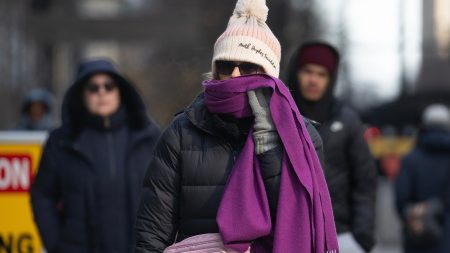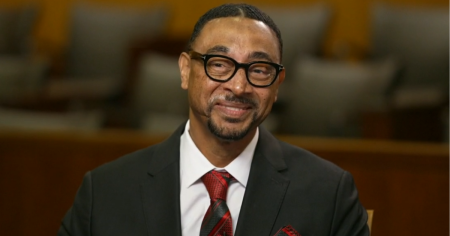Reviving History and Culture Through Black-Owned Businesses in Southwest Atlanta
In the heart of southwest Atlanta, a vibrant movement is underway, led by Black-owned businesses that are not only preserving the rich history of their neighborhoods but also fostering a sense of community and cultural pride. At the center of this movement are local cafés and cooperatives, each playing a crucial role in sharing stories of Atlanta’s storied past while promoting Black entrepreneurship. These businesses are inspired by the legacy of Lottie Watkins, a trailblazing local businesswoman whose impact continues to resonate today. This article explores how these establishments are creating spaces that celebrate Black culture, address income inequality, and honor the legacies of those who paved the way for future generations.
A Cup of Coffee, A Legacy of Empowerment
Among the businesses leading this charge is Portrait Coffee, a café co-founded by Aaron Fender. Located on Ralph David Abernathy Boulevard, Portrait Coffee is more than just a place to grab a cup of coffee—it’s a space dedicated to bridging the economic gaps in Atlanta, a city ranked as the worst for income inequality in a 2024 GOBankingRates report. Fender hopes his shop can serve as a catalyst for the community, fostering connections and opportunity. His inspiration comes from Lottie Watkins, the first Black woman in Atlanta to become a licensed real estate broker and a prominent figure in the city’s Civil Rights Movement.
Watkins, who passed away in 2017 at the age of 98, left an indelible mark on southwest Atlanta. She purchased a building on Gordon Street (now Ralph David Abernathy Boulevard) and established Lottie Watkins Enterprises in 1960, creating a hub for minority-owned businesses. Today, that building is home to Portrait Coffee, a testament to her vision of empowering Black entrepreneurs and preserving the community’s identity. Inside the café, art honoring Watkins adorns the walls, and photos of Black families line the counter, offering customers a glimpse into the region’s history. Fender describes these images as "cultural artifacts" that invite everyone, regardless of race, to engage with and understand the stories they tell.
One of Portrait Coffee’s most popular offerings is the "Aunt Viv Latte," named after Vivian Banks from the sitcom The Fresh Prince of Bel-Air. The drink symbolizes the kind of care and correction that Fender believes defines community. "Everybody needs an Aunt Viv," he says, "somebody to care and love on you but also correct and kind of push you." This philosophy extends beyond the café’s menu, reflecting its broader mission to nurture and uplift the community.
A Matriarch’s Legacy Lives On
Lottie Watkins was more than a businesswoman; she was a matriarch of southwest Atlanta, a leader who mentored countless individuals during the Civil Rights Movement and beyond. Her granddaughters remember her as a woman who got things done, earning her the nickname "the lady to get it done." This reputation is etched on her tombstone, a reminder of her enduring influence. Watkins’ family recalls how she was a go-to advisor for any new initiative impacting Atlanta’s Black community, making her a cornerstone of local leadership.
Watkins’ daughter, Joyce Bacote, believes her mother would be proud of the young entrepreneurs carrying on her legacy. "Black-owned, entrepreneurs, young, that’s the kind of energy that my mom had," she says. Portrait Coffee and other businesses in the area embody this spirit, proving that Watkins’ impact continues to inspire a new generation of leaders.
Cafe Bartique: A Space of Love and Legacy
Just down the road from Portrait Coffee is Cafe Bartique, founded by Angela Ingram, a third-generation restaurateur who left her corporate job at Nordstrom to pursue her passion for feeding and nurturing her community. Ingram’s café, located on Cascade Road, is a cozy haven where warm soups, grilled cheese croissants, and other treats are served with a side of pure love. "That’s what I got my whole life from the women that raised me," Ingram says, "is love and acceptance of everybody."
Cafe Bartique is deeply connected to Portrait Coffee, as Ingram intentionally chose to use the local roaster for her coffee. "We want to make sure our dollars stay in this community," she explains. Ingram’s commitment to supporting Black-owned businesses reflects her broader vision of fostering unity and strength in southwest Atlanta. Her café has become a gathering place where patrons are greeted with warmth and treated like family—often earning nicknames like "baby" or "boo."
For Ingram, her work is not just about food; it’s about preserving the legacy of her grandmother, mother, and aunts, who all owned restaurants in Aberdeen, Mississippi. She sees herself as the "first aunt and uncle" of Cascade Heights, a title that reflects her role as a caretaker and leader in the community.
The Ke’nekt Cooperative: A Space for Liberation and Innovation
Another prominent establishment in southwest Atlanta is The Ke’nekt Cooperative, founded by Kiyomi Rollins, a longtime Westview resident. Located in a former mechanic shop, this cooperative describes itself as a "Black liberated third space," where community members can gather to exchange ideas, work, and inspire one another. Rollins was inspired to create The Ke’nekt after her lease for her skin and hair product business was terminated, highlighting the challenges faced by Black-owned businesses in rapidly changing neighborhoods.
The cooperative is rooted in the tradition of third spaces—churches, barbershops, and corner stores—that have long been central to Black culture and innovation. "When you look at the bedrock of the civil rights movement, people met, gathered, talked innovative ideas in spaces such as the Ke’nekt," Rollins explains. Today, The Ke’nekt serves as a fair-trade coffee shop, a hub for collaboration, and a platform for amplifying the voices of those often marginalized.
Rollins is acutely aware of the role coffee shops can play in gentrification, which has become a pressing issue in Atlanta. Research from Harvard and Georgia State University shows that the arrival of coffee shops often correlates with rising housing prices and the displacement of low-income families. To address this, Rollins prioritizes serving and empowering community members with the least access or voice. She emphasizes the importance of supporting Black businesses like Portrait Coffee, Cafe Bartique, and The Ke’nekt Cooperative, urging people to "come into these Black-ass spaces and buy some Black-ass coffee."
A Call to Action: Support Black Businesses
The stories of Portrait Coffee, Cafe Bartique, and The Ke’nekt Cooperative highlight the importance of supporting Black-owned businesses in southwest Atlanta and beyond. These establishments are more than just places to grab a drink or a meal; they are spaces where history is preserved, culture is celebrated, and community is strengthened. By choosing to shop at these businesses, customers are investing in the local economy and helping to create a more equitable future.
As Atlanta continues to grapple with income inequality and gentrification, the work of entrepreneurs like Aaron Fender, Angela Ingram, and Kiyomi Rollins offers a beacon of hope. Their businesses not only honor the legacies of leaders like Lottie Watkins but also pave the way for a brighter, more inclusive tomorrow. By supporting these Black-owned businesses, we all play a role in nurturing the vibrant culture and resilience of southwest Atlanta.
In the end, the story of these businesses is a testament to the power of community, creativity, and collaboration. It reminds us that even in the face of challenges, the collective efforts of determined individuals can create meaningful change—one cup of coffee at a time.















